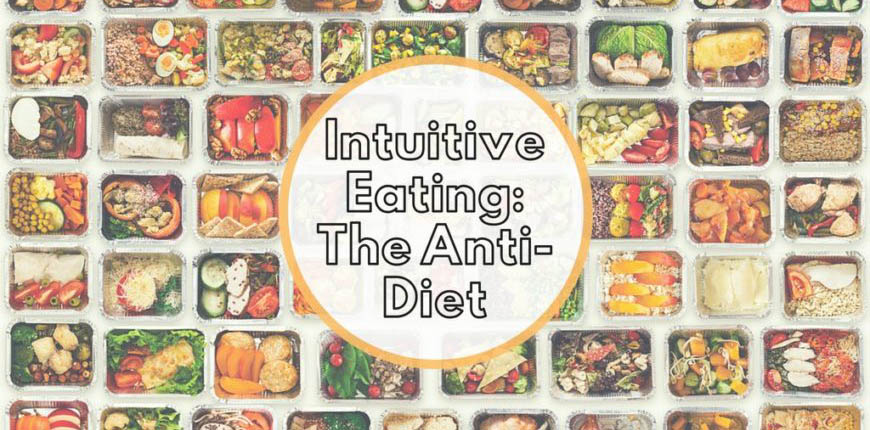Many eating disorder professionals often speak of “intuitive eating”. Intuitive eating entails honoring your body by paying attention and listening to your body’s hunger and fullness cues. This is often counterintuitive in eating disorders, disordered eating, and overall diet cultures. Most diets consist of restricting or eliminating certain food groups, amount of food, and that time at which food should be consumed. Tribole and Resch, authors of “Intuitive Eating: A Revolutionary Program That Works,” speaks of intuitive eating and the dangers diet culture can have on an individual’s relationship with food and thus mental health. Tribole and Resche state: “What she did not realize was that it was the process of dieting that had done this to her. Dieting had made her more preoccupied with food. Dieting had made food the enemy. Dieting had made her feel guilty when she wasn’t eating diet-type foods. Dieting had slowed her metabolism (Tribole & Resche, pg. 1). ” This excerpt clearly illustrates the detrimental effects restrictive food intake can have on an individual’s physical and mental health.
So what is intuitive eating? As mentioned above, intuitive eating consists of listening and honoring your body’s hunger and fullness cues. Intuitive eating practices eating when you are hungry and stopping when you are full. You can begin intuitive eating by practicing mindful eating. This involves becoming aware of what it feels like when you are hungry and what it feels like when you begin to feel full and satisfied. Sounds simple, right? However, it takes practice using mindfulness during meals. This means avoiding distractions, such as watching TV, during meal times. Mindful eating involves becoming aware of all your senses during the eating experience by taking a moment before the meal and taking note of how the food smells, what it looks like (restaurants plate meals to look appetizing as the eating experience is more than just eating!!), and overall hunger. During the meal, practice being mindful of the taste, texture, and temperature of the food. After the meal, take time to think of how that food makes you feel. Do you feel satisfied or full? Slowing down the meal process and allowing yourself to be aware of all of your senses can help you begin the process of becoming an intuitive eater. In addition, it can help you identify your true food likes and dislikes!

Intuitive eating also includes being aware of the foods you are “craving” or “in the mood for” and honoring those cues. Of course, those foods may not always be readily available, but it allows you to be aware of what your body wants. Intuitive eating means eating a hamburger and french fries when you are hungry and that is what sounds good. Intuitive eating means having a salad when you are hungry and that is what sounds good. Listening to your body and allowing yourself to have all foods takes the “power” away from food. You may notice you do not feel the need to over-indulge when eating foods that may typically be “off-limits” because you no longer have to worry about the next time you can have the food you enjoy. This is allowing food to be what it is, food!
Tribole and Resche1, see below, discuss the ten principles of intuitive eating. Over the next few weeks, I will dive into each principle to help you practice intuitive eating!
10 Principles of Intuitive Eating:
- Reject the diet mentality
- Honor your hunger
- Make peace with food
- Challenge the food police
- Feel your fullness
- Discover the satisfaction factor
- Cope with your emotions without using food
- Respect your body
- Exercise- feel the difference
- Honor your health- gentle nutrition
Disclaimer: if you are struggling with an eating disorder or in early recovery of an eating disorder, mindful eating may not be appropriate as hunger and fullness cues can be diminished or absent. Before starting intuitive eating, talk with your dietitian first! A dietitian can help guide you towards a healthy body, mind, and spirit by working with you to challenge eating disorder beliefs and help you reconnect to the joy of eating!
Resources:
1TRIBOLE, E. V. E. L. Y. N., & Resch, E. (2020). Intuitive Eating: a revolutionary program that works. S.l.: ST MARTINS ESSENTIALS.



